Global Media Fellowship Programme for journalists working in Africa
REDD+ in Africa
An examination and analysis
Please note that the application process for the Fellowship is now closed.
REDD+ stands for Reducing Emissions from Deforestation and Forest Degradation in developing countries. Deforestation and forest degradation are the second leading cause of global warming, accounting for 17.4 per cent of global greenhouse gas emissions. With 16.7 per cent of the world’s forest cover lying in Africa and deforestation rates in the continent being four times the global average, this region is of critical importance for forest-based mitigation efforts.
Over the last decade, successive climate change talks have firmly established REDD+ projects as having good prospects. The world carbon market is attracted to this project type, which has a potential for poverty alleviation and ensuring payment for ecosystem services. As a result, REDD+ projects have been booming in the continent, with financial assistance coming from multiple sources.
However, there are some apprehensions as well: misgovernance of REDD projects might backfire, leading to alienation of communities and land-grab. Some argue that REDD+ is emerging as a new form of colonialism and economic subjugation. Vast tracts of Africa are being labeled ‘unused’, ‘degraded’ or in need of ‘conservation’, ‘afforestation’ or ‘reforestation’, to justify the advent of what is being referred by many as carbon colonialism.
How much truth is there in this opinion? What is the current status of REDD+ initiatives in Africa and their impact in the region? We invite journalists from Africa to travel, investigate and report on this subject under CSE’s global fellowship programme.
Who is eligible to apply?
All journalists, including freelancers, working in any country in Africa
Application procedure
Application in English, accompanied by the following documents, should be emailed to the undersigned on or before September 25, 2016.
-
Latest curriculum vitae (CV) of the applicant
-
A fellowship proposal: Containing a brief description of what the applicant proposes to study and report on, who are the experts/individuals who will be interviewed, travel plans (if any) etc – the proposal should not exceed 250 words.
-
A support letter from the editor of a media publication / media house, assuring that if selected, your fellowship output will be published / telecast / broadcast. The original signatures of the signing authority have to be there on the letter. You may send a scanned copy of the signed letter.
-
Sample articles/stories: One sample of any recent development story that you have done (if the story is not in English, a translation would be welcome)
Important Instructions
-
Send all documents in PDF format
-
Incomplete applications will not be considered for the final selection
-
No applications will be accepted after the last day of sending in the entries
-
The proposal has to be specific to the given topic and should not be generic in nature. Try to include a tentative travel plan if required
-
Kindly label the files in the following format:
YourFullName_DocumentType
For Example if your name is Anna Paul the documents should read as:
AnnaPaul_CV or AnnaPaul_Proposal
Fellowship grant amount
USD 2,000 per Media Fellow (subject to deduction of appropriate taxes)
Number of fellowship grants on offer: 8-10
Fellowship period – the important dates
-
Last date for receiving applications: September 25, 2016
-
Announcement of names of selected Fellows: October 4, 2016
-
Fellowship begins: October 10, 2016
-
Last date for receiving complete fellowship documents and copies of reportage: November 25, 2016
Expected fellowship output
-
Articles and stories on the proposed subject, published / broadcast / telecast in a recognized media
-
A detailed research report, to be written in the format provided by CSE( format to be provided after candidate selection)
-
Photographs to supplement the articles / stories / research
The CSE Media Fellowship Programme
The objective of the CSE Media Fellowship Programme is to encourage media houses to provide space to stories of environment and development, and to allow journalists the chance to travel and produce such stories. Through this initiative, the Programme aims to build up a network of writers, journalists and communicators who have a deep understanding of environment-development issues and who write on these issues in an informed manner. The Programme has supported over 200 journalists from India and other South Asian countries, and has now been opened to African media people.
| Selected Fellows |
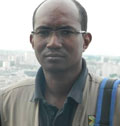
Rivonala Razafison |
||

Sammuel Hinneh |
||
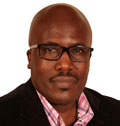
Wanjohi Kabukuru |
||
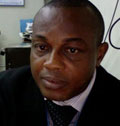
Chinedu Uwaegbulam |
||
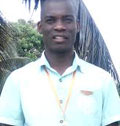
Tikondane Vega |
||
|
|
||
|
|
||

Esther Nakkazi |
||
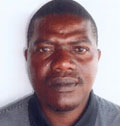
Mukeya Liwena |
||
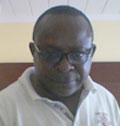
Elias Ntungwe |
For our previous Global Media Fellowship Programme on water and air pollution, please click here

 Andrew Mambondiyani
Andrew Mambondiyani Agatha Ngotho
Agatha Ngotho
Share this article